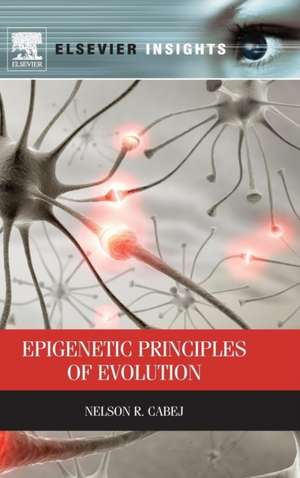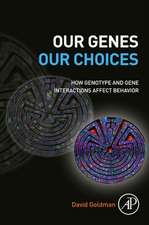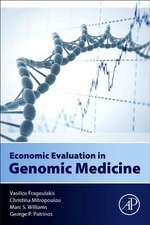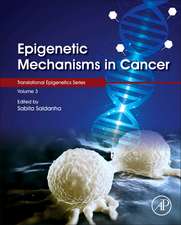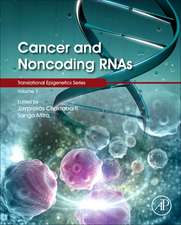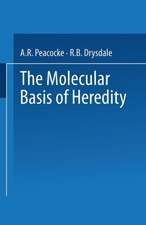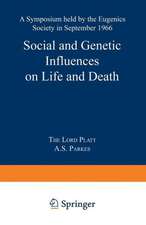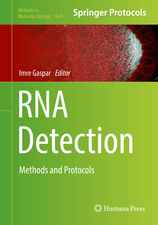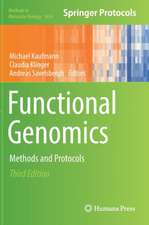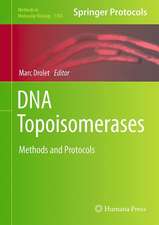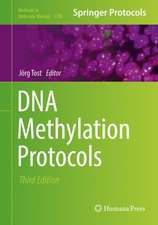Epigenetic Principles of Evolution
Autor Nelson R Cabejen Limba Engleză Hardback – 20 noi 2011
The author convincingly supports his theory with a host of examples from the most varied fields of biology, by emphasizing changes in developmental pathways as the basic source of evolutionary change in metazoans.
- Original and thought provoking--a radically new theory that overcomes the present difficulties of the theory of evolution
- Is the first and only theory that uses epigenetic mechanisms and principles for explaining evolution of metazoans
- Takes an integrative approach and shows a wide range of learning
Preț: 907.83 lei
Preț vechi: 1243.61 lei
-27% Nou
Puncte Express: 1362
Preț estimativ în valută:
173.74€ • 180.71$ • 143.43£
173.74€ • 180.71$ • 143.43£
Carte tipărită la comandă
Livrare economică 14-28 aprilie
Preluare comenzi: 021 569.72.76
Specificații
ISBN-13: 9780124158313
ISBN-10: 0124158315
Pagini: 846
Ilustrații: black & white illustrations, black & white tables, figures
Dimensiuni: 152 x 229 x 56 mm
Greutate: 1.36 kg
Editura: ELSEVIER SCIENCE
Locul publicării:London, England, United Kingdom
ISBN-10: 0124158315
Pagini: 846
Ilustrații: black & white illustrations, black & white tables, figures
Dimensiuni: 152 x 229 x 56 mm
Greutate: 1.36 kg
Editura: ELSEVIER SCIENCE
Locul publicării:London, England, United Kingdom
Public țintă
Evolutionary biologists, developmental biologists and ecologistsCuprins
Introduction
Part 1: Epigenetic Basis of Metazoan Heredity
Part 1: Epigenetic Basis of Metazoan Heredity
- Control Systems and Determination of Phenotypic Traits in Metazoans
- Neural Manipulation of Gene Expression
- Epigenetic Control of Reproduction
- Epigenetic Control of Early Development
- Neural Control of Postphylotypic Development
- The Epigenetic System of Heredity – An OutlinePart 2: Neural-Developmental Premises of Evolutionary Adaptation
- Evolution and Stress Responses to Changes in Environment
- Behavioral Adaptation to Changed Conditions of Living
- Ontology: The Workshop of Evolutionary Change
- Intragenerational Developmental PlasticityPart 3: Epigenetics of Circumevolutionary Phenomena and the Mechansim of the Evolutionary Change
- Transgenerational Developmental Plasticity – An Epitome of Evolutionary Change
- Evolution of Metazoans and Their Control SystemPart 4: Epigenetics of Metazoan Evolution
- Origins of Evolutionary Novelty
- Evolution by Loss
- Evolution by Reverting to Ancestral Characters
- Neural Crest-Determined Evolutionary Novelties
- Evolutionary Convergences: The Trend Toward Sameness in Metazoan Evolution
- Species and Allopatric Speciaition
- Epigentics of Sympatric Speciation – Speciation as a Mechanism of Evolution
Recenzii
"Cabej (biology, U. of Tirana, Albania) explains the epigenetic principles of evolution (as opposed to the theory of evolution as determined by changes in genes) and reconstructs the developmental mechanisms of evolutionary changes in metazoans, based on empirical evidence. He focuses on the mechanisms of the generation of the evolutionary innovations from the influence of environment on heredity rather than the role of natural selection. He discusses control systems and determination of phenotypic traits in metazoans, neural manipulation of gene expression, epigenetic control of reproduction and early development, neural control of postphylotypic development, and the epigenetic system of inheritance. He follows with description of neural-developmental premises of evolutionary adaptation, including evolution and stress responses and behavioral adaptation to changes in environment, ontogeny, and intragenerational developmental plasticity; epigenetics of circumevolutionary phenomena and the mechanism of evolutionary change, including transgenerational developmental plasticity and the evolution of metazoans and their control system; and the origins of evolutionary novelty, evolution by loss or by reverting to ancestral characters, neural crest-determined evolutionary novelties, evolutionary convergences, species and allopatric speciation, and sympatric speciation. He presents the available evidence for his theory, rather than illustrating an established theory, and includes a comparative presentation of the neo-Darwinian view to his epigenetic explanation. There is no index." --Reference and Research Book News, October 2012
